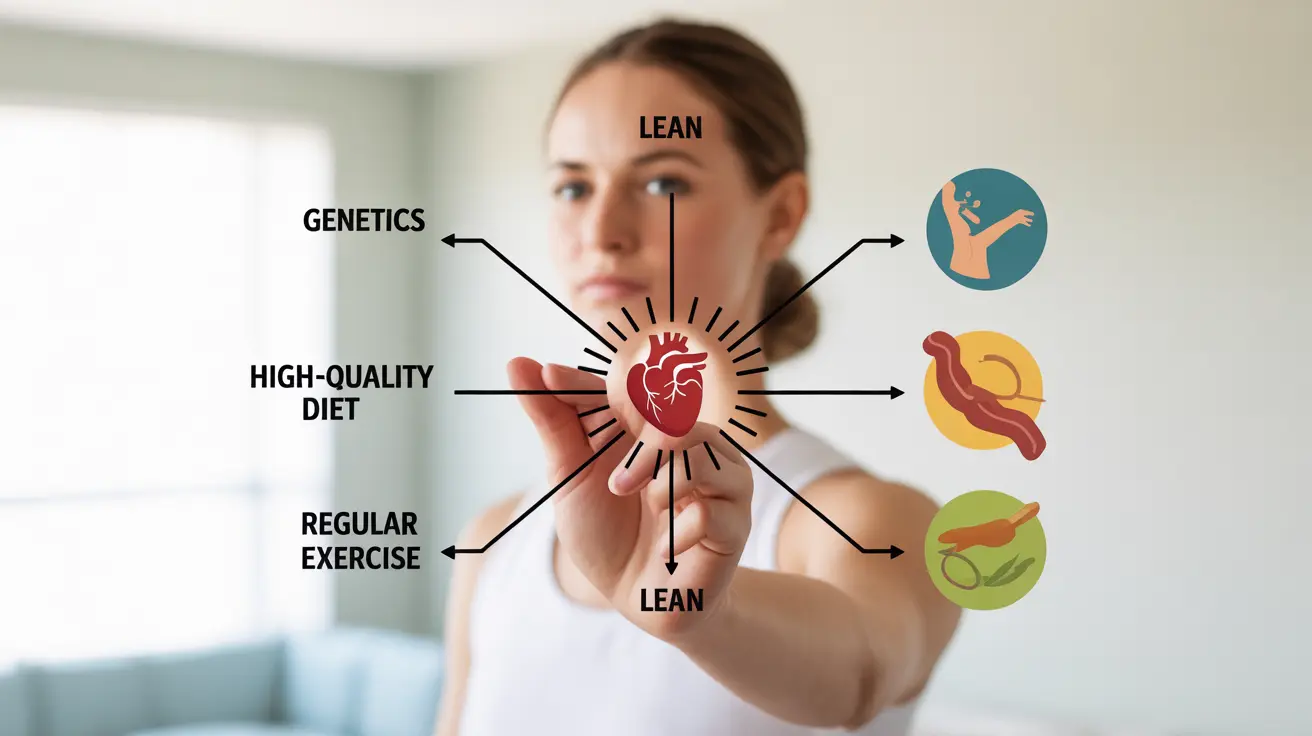Many people assume that maintaining a slim figure automatically means having healthy cholesterol levels. However, being thin doesn't guarantee protection against high cholesterol, a condition that can affect individuals regardless of their body weight or appearance. Understanding this counterintuitive health issue is crucial for proper cardiovascular health management.
This comprehensive guide explores why skinny individuals can develop high cholesterol, identifying risk factors, and outlining effective management strategies for those who are thin but face cholesterol challenges.
Understanding the Skinny-High Cholesterol Paradox
The relationship between body weight and cholesterol levels isn't as straightforward as many believe. Thin individuals can have high cholesterol due to various factors, including genetics, dietary habits, and lifestyle choices. This condition, sometimes called "metabolically obese normal weight," can catch many people off guard during routine health screenings.
Key Factors Contributing to High Cholesterol in Thin People
Genetic Predisposition
Family history plays a significant role in cholesterol levels. Some individuals inherit genes that cause their bodies to produce excess cholesterol or process it inefficiently, regardless of their weight. This genetic influence can lead to elevated cholesterol levels even in those maintaining a healthy weight.
Diet Quality vs. Quantity
Being thin doesn't necessarily mean following a healthy diet. Some slim individuals consume foods high in saturated fats, trans fats, and refined carbohydrates while maintaining a low weight due to fast metabolism or small portion sizes. These dietary choices can significantly impact cholesterol levels regardless of body mass.
Hidden Visceral Fat
Even thin people can accumulate dangerous visceral fat around their organs, particularly in the abdominal area. This type of fat, while not always visible from the outside, can contribute to elevated cholesterol levels and other metabolic issues.
Assessing Your Risk
Physical Measurements
To evaluate risk factors beyond weight, healthcare providers often use measurements such as waist circumference and waist-to-hip ratio. These metrics can help identify hidden fat distribution patterns that might contribute to cholesterol problems.
Regular Screening
Thin individuals should not skip regular cholesterol screenings based on their weight alone. Regular blood tests can help detect elevated cholesterol levels early, allowing for timely intervention and management.
Managing High Cholesterol When You're Thin
Dietary Modifications
Focus on heart-healthy foods rich in fiber and omega-3 fatty acids while limiting saturated fats and processed foods. Key dietary changes include:
- Incorporating more fruits, vegetables, and whole grains
- Choosing lean proteins and fish
- Limiting refined carbohydrates and sugary foods
- Adding healthy fats from sources like nuts, seeds, and olive oil
Exercise Recommendations
Regular physical activity is crucial for managing cholesterol levels, even for thin individuals. Aim for:
- At least 150 minutes of moderate-intensity aerobic exercise weekly
- Strength training exercises 2-3 times per week
- Regular movement throughout the day to avoid prolonged sitting
Frequently Asked Questions
Why can thin people have high cholesterol even if they appear healthy?
Thin people can have high cholesterol due to genetic factors, poor diet quality, hidden visceral fat, or lifestyle habits. Physical appearance doesn't always reflect internal health markers.
What are the main causes of high cholesterol in individuals who are skinny?
The main causes include genetic predisposition, consuming foods high in saturated fats, lack of exercise, and accumulation of visceral fat around organs, despite maintaining a slim appearance.
How can a thin person check if they have unhealthy fat around their abdomen?
Measure your waist circumference at belly button level. For women, over 35 inches, and for men, over 40 inches, might indicate excess visceral fat. Healthcare providers can also perform specific assessments.
What lifestyle changes can help reduce high cholesterol for people who are slim?
Focus on heart-healthy foods, regular exercise, stress management, and adequate sleep. Consider working with healthcare providers to develop a personalized plan.
Does family history affect cholesterol levels regardless of body weight?
Yes, genetic factors can significantly influence cholesterol levels independently of body weight. Family history of high cholesterol or heart disease increases risk regardless of physical appearance.




